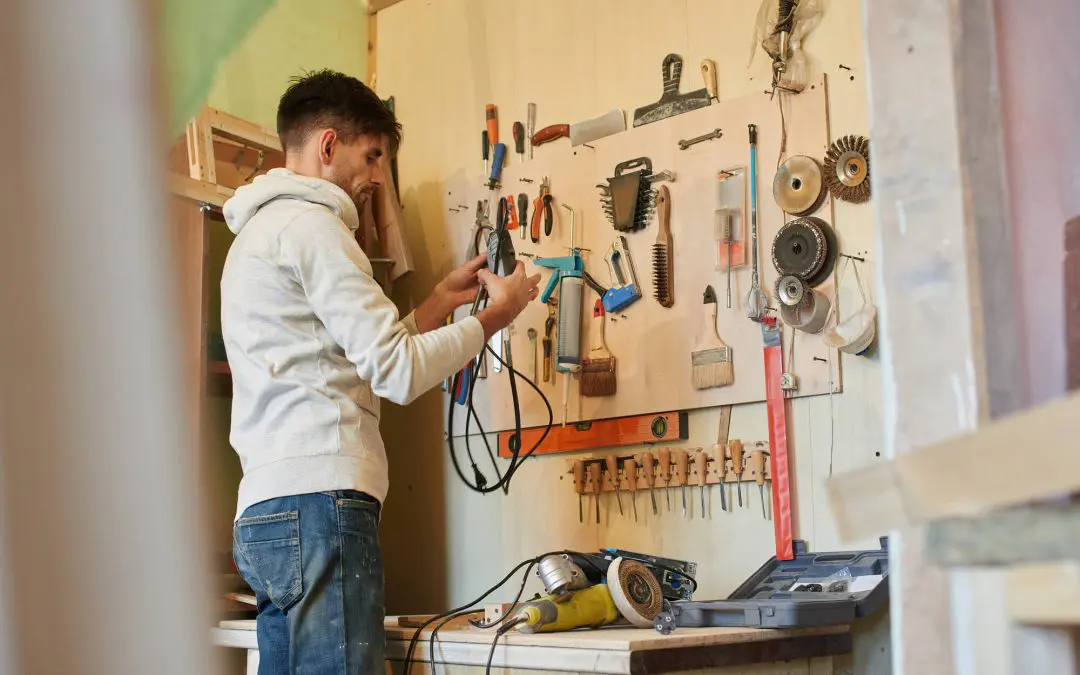Building a Home Workshop
Creating a dedicated workshop space in your home is a rewarding project that provides you with a place to tackle even more DIY projects. Whether you’re a seasoned DIY enthusiast or just starting, building a home workshop requires careful planning and consideration. In this guide, we’ll walk you through the steps to build a functional and efficient home workshop.
Planning Your Workshop Space
Start by taking some time to plan and envision what you want your new space to look like:
Size: Determine the size of your workshop based on the available space and your specific needs. Consider the types of projects you’ll be working on and the tools and equipment you’ll need.
Location: Choose a location for your workshop with plenty of space. It could be a spare room, garage, basement, or backyard shed.
Layout: Plan the layout of your workshop to maximize efficiency and functionality. Make sure there’s enough room for movement and that you can easily access tools and equipment.
Equipping Your Workshop
Once you’ve decided on the layout of your new workshop space, it’s time to equip it with the necessary tools and equipment:
Workbench: A sturdy workbench is the cornerstone of any workshop. Choose a workbench that suits your space and has ample surface area for projects.
Power tools: Invest in essential power tools such as a drill, circular saw, jigsaw, and sander. Cordless options provide added flexibility.
Hand tools: Stock up on various hand tools, including screwdrivers, wrenches, hammers, pliers, and measuring tools. These tools are perfect for precision work and detail-oriented tasks.
Storage solutions: Organize your workshop with proper storage solutions such as shelving units, cabinets, and tool chests. Keep tools and supplies neatly arranged and easily accessible.
Lighting: Make sure there’s adequate lighting in your workshop to prevent eye strain and improve visibility. Install overhead lighting as well as task lighting for specific work areas.
Setting Up Your Workshop
With the right tools and equipment in hand, it’s time to set up your workshop and bring your vision to life:
Install workbench and storage: Place your workbench in a central location within your workshop and place storage around it to keep tools handy.
Arrange tools and equipment: Organize your tools and equipment so that frequently used items are within arm’s reach and less frequently used items are stored away.
Establish work zones: Designate specific areas within your workshop for different tasks, such as woodworking, metalworking, and assembly. This helps streamline workflow and improve efficiency.
Safety first: Prioritize safety in your workshop by installing smoke detectors, fire extinguishers, and first aid kits. Familiarize yourself with safety procedures and always wear appropriate protective gear when working with tools and equipment.
Building a home workshop gives you the freedom to complete projects on your property. By carefully planning your space, equipping it with the right tools and equipment, and prioritizing safety, you can create a functional workspace that enhances your DIY projects and hobbies.
Building a Home Workshop FAQs
Do I need a dedicated space for a home workshop, or can I use a multi-purpose area?
While creating a workshop in a multi-purpose area is possible, having a dedicated space offers several advantages, including better organization, reduced clutter, and increased focus on your projects.
How do I determine the right size for my home workshop?
The size of your workshop depends on factors such as the available space, the types of projects you’ll be working on, and the amount of equipment and tools you need to accommodate. Consider your specific needs and aim for a space that allows comfortable movement and workflow.
What are some essential safety measures to follow in a home workshop?
Always wear appropriate protective gear, such as safety glasses and earplugs, when working with tools and equipment. Keep your workspace clean and free of clutter to prevent accidents. Familiarize yourself with the proper operation of tools and follow manufacturer instructions and safety guidelines.
How can I maximize storage space in my home workshop?
Invest in versatile storage solutions such as pegboards, wall-mounted shelves, and rolling tool chests to maximize vertical space. Utilize bins, containers, and labeling systems to keep tools and supplies organized.
Bronze Star Home Inspections provides inspection services to the DFW Metroplex. Contact us to schedule your appointment.

